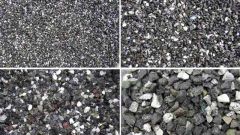You will need
- calculator
Instruction
1
To convert kg/h to m3/h, it is necessary to clarify the matter density, flow (flow) is measured in this task. Very often in school assignments and in practice appears water or low-concentrated solutions. In this case, the fluid density can be taken equal to 1000 kg/m3 (kilograms per cubic meter). That is to translate the flow of water, given in kg/h to m3/h, use the following formula:
R(m3/h) = P(kg/h) / 1000,
where:
R(m3/h) – liquid flow rate in m3/h
R(kg/h) is the known liquid flow rate, expressed in kg/h.
R(m3/h) = P(kg/h) / 1000,
where:
R(m3/h) – liquid flow rate in m3/h
R(kg/h) is the known liquid flow rate, expressed in kg/h.
2
Example
The consumption of cooling water in miniature liquid circulation thermostat Petite Fleur w - 23 kg/hour.
Question: how much water the device uses per hour of work?
Solution: 23/1000=0,023 (m3/h).
The consumption of cooling water in miniature liquid circulation thermostat Petite Fleur w - 23 kg/hour.
Question: how much water the device uses per hour of work?
Solution: 23/1000=0,023 (m3/h).
3
If we consider in the problem of the liquid is lighter or heavier than water, find its density in the relevant tables of the density. If you need tables or the name of the liquid is unknown or it is a mixture of several substances in unknown proportions, then determine the density of the liquid independently. After the density of the fluid will be known, use the following formula:
R(m3/h) = P(kg/h) / P,
where P is the fluid density expressed in kg/m3.
R(m3/h) = P(kg/h) / P,
where P is the fluid density expressed in kg/m3.
4
Example
In one hour of operation the fuel-dispensing column gives 2700 kg of gasoline.
Question: how many cubic meters of gasoline can gas station pump in an hour?
Solution:
1. Look in the table of density of fuel density of gasoline is 750 kg/m3.
2. Calculate the consumption of gasoline according to the above formula: 2700 / 750 = 3,6 (m3/h).
In one hour of operation the fuel-dispensing column gives 2700 kg of gasoline.
Question: how many cubic meters of gasoline can gas station pump in an hour?
Solution:
1. Look in the table of density of fuel density of gasoline is 750 kg/m3.
2. Calculate the consumption of gasoline according to the above formula: 2700 / 750 = 3,6 (m3/h).
5
If the speed of fluid flow in kg/h is unknown, measure it yourself. This does not necessarily armed with a huge measuring Cup and fill it for an hour. Take any large enough container and weigh it. Then fill it in for 5-10 minutes. Then record the time of loading, weigh the filled container and subtract from this weight the weight of the containers. Divide the weight of the fluid (in kg) by the filling time (in hours). The end result is the speed of fluid flow in kg/h.
6
If the density of the unknown liquid, then pour it in a standard capacity of known volume (bucket, jar, jar, etc.). Dividing the weight of the fluid (in kg) volume (m3), we obtain the density in kg/m3.



